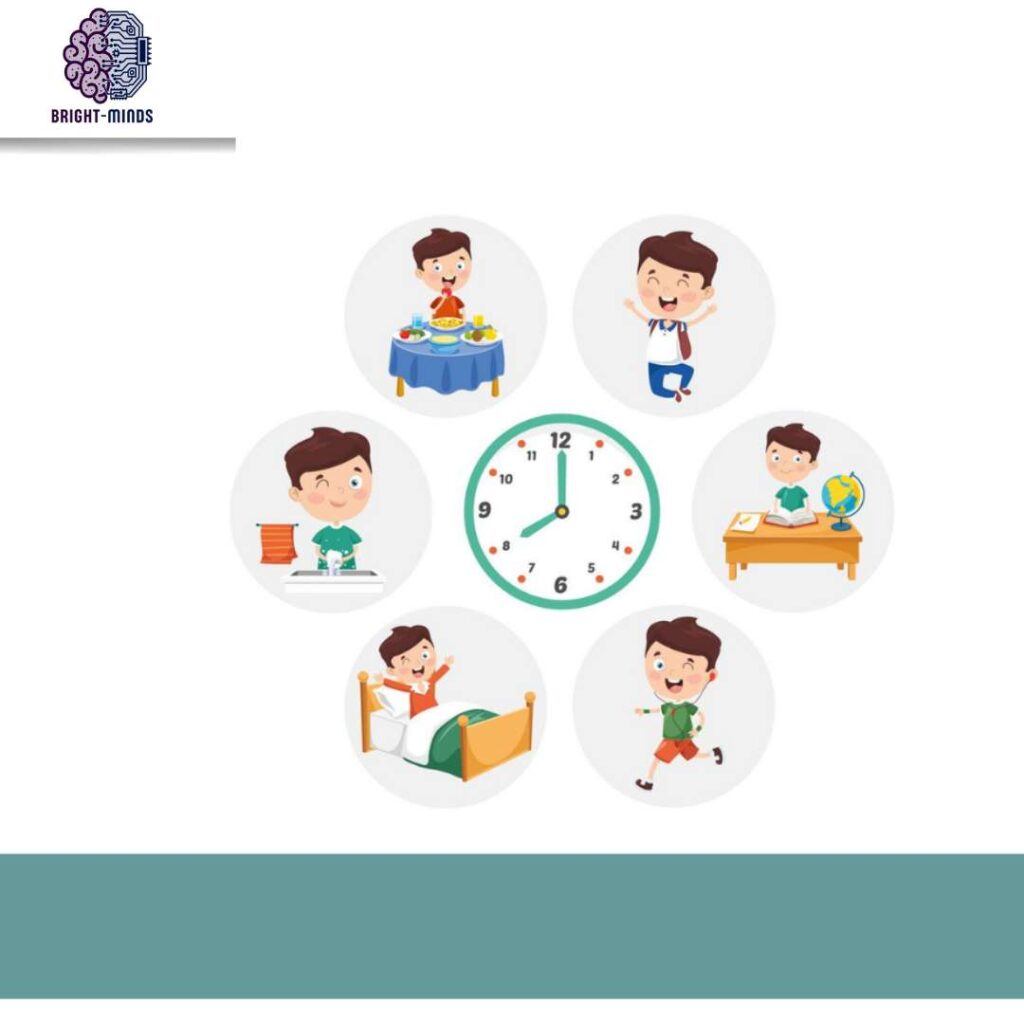Introduction
When it comes to primary students, structure and consistency are key elements for a productive and positive learning experience. Children, particularly in early grades, thrive in an environment where they know what to expect. Daily routines help them feel secure and supported, providing a framework that promotes learning, discipline, and emotional stability.
In the fast-paced world of education, it can be easy to overlook the power of daily routines. However, research and experience show that having clear, predictable routines can significantly enhance a child’s ability to learn, stay focused, and engage with the curriculum. In this blog, we will explore how daily routines positively impact primary students’ learning, and how educators and parents can implement effective routines to support a child’s academic, emotional, and social development.
Establishing a Sense of Security and Stability

For young children, a predictable routine is a vital part of their sense of security. The more a child knows what to expect, the more confident and focused they can be during learning activities. Routines reduce anxiety and help students understand the structure of their day, which in turn increases their ability to engage with the material being taught.
How It Enhances Learning:
- Predictability: Knowing when and where activities will take place helps students feel less anxious. For example, when students know they will have time for free play after lunch, they are less likely to feel unsettled during academic tasks.
- Comfort with Transitions: Children often struggle with transitions from one activity to another. A daily routine offers a seamless flow of activities that students can follow, minimizing disruptions and helping them adjust more easily to changes.
- Reduces Stress: Having a consistent daily schedule helps children feel calm and grounded, which is essential for learning. Stress and uncertainty can hinder cognitive function, so a secure routine helps keep a student’s mind at ease and ready to focus.
Improving Focus and Attention
Children are naturally active and curious, but in order for them to learn effectively, they need periods of focus and attention. A well-structured routine helps students switch gears between different activities and gives them clear expectations of when to focus, when to engage, and when to rest.
How It Enhances Learning:
- Time for Focused Learning: When students know that there will be a designated time for reading, math, or writing, they are more likely to focus their attention on the task at hand. This focused time improves retention of information and allows for deeper engagement with the lesson.
- Short and Effective Breaks: Routines also build in short breaks, which are essential for young learners. These breaks allow students to refresh their minds, reducing mental fatigue and enabling them to return to their work with better focus.
- Attention Regulation: By consistently transitioning between activities, children learn how to regulate their attention. For example, starting the day with a calming activity, followed by a physical exercise session, and then settling into academic work, helps students learn how to focus when necessary.
Enhancing Time Management Skills
Time management is an essential skill that many children begin to develop through routines. Primary students learn how to prioritize activities, pace themselves, and understand how long tasks will take based on their daily schedules.
How It Enhances Learning:
- Task Completion: A clear routine teaches students that certain activities are time-bound. For example, knowing that they have 20 minutes to complete a math assignment helps them learn to manage their time effectively.
- Encourages Responsibility: As students become familiar with their routine, they take more responsibility for their own actions. Knowing when it’s time for lunch or when their break ends encourages them to stay on track with their tasks.
- Building Good Habits: Over time, students build healthy habits that improve their efficiency. Routines help them allocate time for different subjects, ensuring that no area of learning is neglected.
Encouraging Positive Behavior and Self-Discipline
Consistency in a child’s routine helps to reinforce good behavior and self-discipline. When students know what is expected of them and the consequences for not following routines, they are more likely to behave appropriately in the classroom and at home.
How It Enhances Learning:
- Clear Expectations: With a set routine, children understand the behavioral expectations that come with each activity. For example, when it’s time for independent reading, students know they should remain quiet and focused.
- Encourages Self-Control: Over time, routines help children develop the ability to control their impulses and emotions. Knowing that certain behaviors (like speaking out of turn) may result in time away from a desired activity encourages students to practice self-regulation.
- Positive Reinforcement: A routine that rewards good behavior (such as allowing extra playtime for staying on task) motivates students to continue making good choices. This reinforces positive actions and promotes self-discipline, a key factor for academic success.
Fostering Social Skills and Collaboration
Daily routines often include group activities, collaborative tasks, and social interactions, which help children develop essential social skills. By regularly engaging with peers, primary students learn how to communicate, collaborate, and resolve conflicts in a structured and supportive setting.
How It Enhances Learning:
- Group Work and Collaboration: Activities like group reading, group discussions, and collaborative projects are incorporated into a child’s routine. This encourages students to interact with one another, share ideas, and work together to solve problems.
- Building Empathy and Respect: Through routine social activities, children learn how to respect others’ opinions, work through disagreements, and support their peers. These lessons in social interaction are just as important for academic success as learning to solve math problems.
- Fostering Friendship: Having set times for social activities helps students build friendships, which boosts their emotional well-being. Positive social interactions support confidence and a sense of belonging in the classroom.
Developing Healthy Habits
Routines play a vital role in establishing habits that support both academic success and personal well-being. For primary students, a consistent daily routine includes time for exercise, healthy meals, and adequate sleep—all of which are essential for their physical and mental growth.
How It Enhances Learning:
- Physical Activity: A structured routine often includes time for physical activities, such as recess or physical education, which helps improve concentration and focus during academic work.
- Nutritional Breaks: Scheduled snack and lunch breaks encourage healthy eating habits. When students know they have time to eat, they are less distracted during class and more able to focus on learning.
- Sleep Routines: Having consistent bedtimes and wake-up times is crucial for a child’s development. A proper sleep schedule helps ensure that students are well-rested and ready to learn the next day.
Promoting Emotional Well-Being
Routine helps children manage their emotions better by creating a sense of stability. It provides them with a predictable framework, which reduces anxiety and helps them feel more in control of their day.
How It Enhances Learning:
- Calm Start to the Day: A consistent morning routine, such as a calming activity like a short meditation, storytelling, or music, helps students transition into the learning environment without feeling rushed or stressed.
- Emotional Regulation: When students know when to expect time for reflection or relaxation, they can better regulate their emotions and reduce feelings of overwhelm or frustration during the day.
- Building Resilience: Routines also teach children how to deal with setbacks. If things don’t go as planned, they learn to adapt and remain focused on what comes next.
mproving Academic Performance
A predictable routine directly influences academic performance. Students who follow a daily routine are able to focus more, complete tasks more efficiently, and retain information better. The structured nature of routines enhances both the quantity and quality of learning.
How It Enhances Learning:
- Reinforces Memory: When activities and learning materials are repeated in a set order, students have a better chance of remembering and internalizing the information.
- Increases Productivity: Knowing when each subject will be taught helps students manage their time and allocate more focus to important topics.
- Encourages Consistency in Work: Routine helps students stay on top of their assignments, review their work regularly, and practice new skills consistently, resulting in better academic outcomes.
Conclusion
Daily routines are far more than a way to keep children organized—they are essential for their emotional, social, and cognitive development. By establishing clear and predictable routines, educators and parents can create an environment that promotes focus, reduces anxiety, and fosters both academic and personal growth. From improving time management and focus to building self-discipline and social skills, daily routines are an effective and powerful tool to support primary students on their learning journey.
Whether you are a teacher trying to establish structure in the classroom or a parent seeking to create a stable routine at home, consistency is key. Routines make a world of difference in creating an environment that encourages learning, fosters well-being, and sets students up for success, both inside and outside the classroom.
you may be interested in this blog here:-

